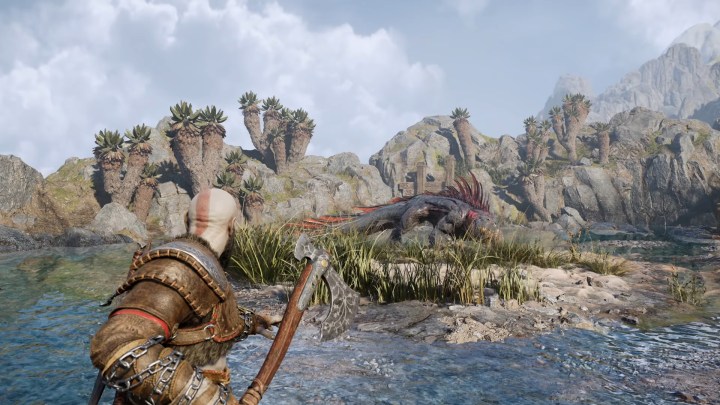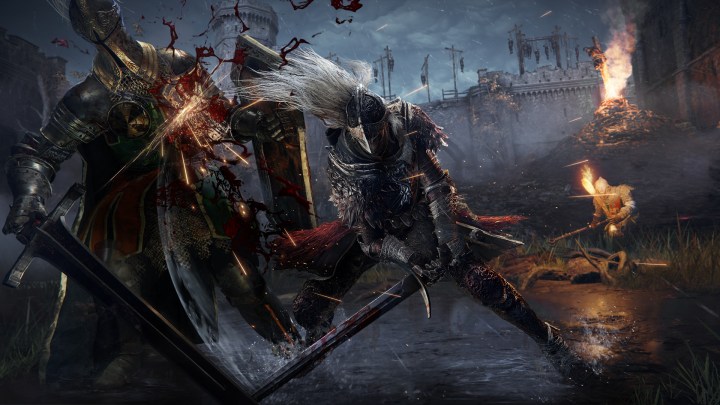It’s no secret that 2021 has been a quiet year for gaming. While the indie scene has been as active and exciting as ever, larger studios have had to delay their biggest games, largely due to development challenges posed by having people work form home. While we’ve seen some high-profile hits like Deathloop and Resident Evil Village this year, many of 2021’s most anticipated titles ended up moving to 2022.
If you feel like you haven’t played many new games this year, that’s about to change. As it stands, 2022 is shaping up to be the biggest year in gaming since 2017.
That statement might elicit some initial eye rolls. Gamers tend to make that claim at the start of any given year. With so many major studios churning out major releases, any year can look good on paper. The reality is that not all of those games end up being good; the hype cycle is always viewed through rose-colored glasses. Games like Kingdom Hearts 3 drummed up excitement heading into 2019, but ultimately ended up slipping off the radar come “game of the year” season. And don’t even get me started about Cyberpunk 2077.

Pandemic upsets routine
Companies also tend to drop aspirational release dates for games that they can’t always keep. Sony originally claimed God of War: Ragnarok was coming in 2021, which felt like a laughably unrealistic goal designed to better sell the then-upcoming PlayStation 5 in 2020. Delays ultimately gutted 2021’s schedule, though for good reason. The challenges of developing games during a pandemic added extra complexity to an already complicated process. We’re lucky that any major releases that involved tens of thousands of moving parts came out at all.
The 2021 spillover is exactly what’s driving 2022’s overly packed schedule. Games that were supposed to be huge holiday hits this year will now launch early next year, and that’s creating a bizarre change in how we’re used to seeing games launch. Generally, September through November is the busiest time of any given year, as companies release their biggest games in a few densely packed months. That lets them end the year on a strong financial note, buoyed by parents who need to get gifts for their kids during the holidays. After that, the industry goes into hibernation for a few months before picking back up.

Instead, January and February 2022 look more like what you’d expect from the fall season. The year is set to kick off with three heavy hitters: Elden Ring, Rainbow Six Extraction, and Pokémon Legends: Arceus. That momentum keeps rolling in February with Horizon: Forbidden West, Destiny 2: The Witch Queen, Saints Row, and Dying Light 2 Stay Human. March is already stacking the deck, too, with Gran Turismo 7, Kirby and the Forgotten City, Marvel Midnight Suns, and Tiny Tina’s Wonderlands leading the pack.
And that’s only the first three months.
A stacked lineup
We’re essentially going to get two year’s worth of games compressed into one. We won’t see the usual dry spells as publishers wait to release their biggest games; it’s going to be a free-for-all. Just look at what else is on tap for 2022: The Legend of Zelda: Breath of the Wild 2, Bayonetta 3, Splatoon 3, God of War: Ragnarok, Redfall, Gotham Knights, Ghostwire Tokyo, Mario + Rabbids: Sparks of Hope, Suicide Squad: Kill the Justice League, a brand new Sonic game … and that’s barely scratching the surface. This doesn’t include promising indies like Stray, niche titles like Triangle Strategy, or whatever big titles will get a surprise reveal at next year’s E3.

Naturally, not all of these games will be released as planned. Just as is the case in any year, some of the biggest titles will be bumped around and wind up in 2023. I’d put money on games like Avatar: Frontiers of Pandora quietly slipping off the calendar. Even still, a third of these titles could move to 2023 and we’d still be looking at a year that’s bound to gum up backlogs.
While the social lockdowns of 2020 got more people gaming than ever before, it wasn’t the best time to introduce fans to the medium. The game release cycle quickly started slowing down as studios simply couldn’t capitalize on the momentum. That’s going to change in 2022. Start budgeting now.



